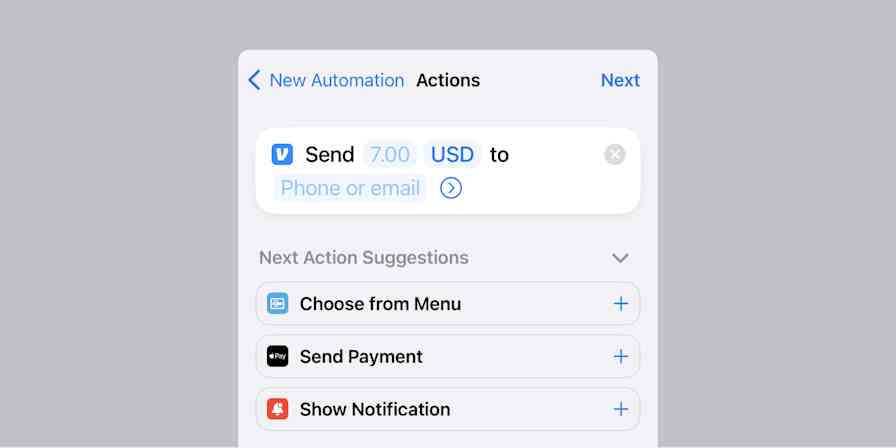As a business owner, there are so many things I really don't want to do that, of course, I have to. And, like many people, I can get into a habit of putting those things off—particularly when I'm feeling bored, uncreative, or distracted.
Over the years, I've learned some ways to give myself a kick in the pants (tips I'll share below). But I wanted to gather some other helpful strategies to mix up my regimen and help others gain some motivation, too, so I reached out to all sorts of folks to get their ideas.
11 motivational tactics that actually work
1. Ask yourself why
There are so many reasons we may be avoiding something—resources, time, distractions. The problem is that we get in this loop of worry and procrastination instead of focusing on how to relieve the problem at hand (and I can almost guarantee you it's not laziness).
So ask yourself what's stopping you, and then figure out how to fix it. For example, if I find I'm lacking confidence, I open what I call my *Nice Things* folder, where I house compliments I get from my clients. Rereading their positive feedback brightens my day and makes me feel more capable of tackling whatever I'm avoiding.
If I feel myself getting distracted, I go to a coffee shop. If I feel generally upset, I know it's time to put on my favorite playlist and go for a run.

Amanda Jackson, a fellow writer, does something similar:
"When I'm not feeling creative, I switch up my normal location—going from my desk to the comfy chair in my bedroom and going to the library instead. I've heard other people say they've even worked from their bathtub! A new environment kickstarts my motivation mode and gets me ready to work."
2. Put it off
If I don't feel like doing something, I put it off. That might sound counterintuitive, but I know that nothing good will happen if I try to force it.
I also know that I tend to work well in the morning, right after I wake up. (If you don't already know your optimal time for working, find your chronotype.) So if I'm really stuck on something and don't want to do it, I push that thing to the next morning or another morning slot and do something else that I know I can accomplish—going for a run, replying to unread emails, invoicing, or listening to a few chapters of an audiobook.
Inevitably, I'll come up with a great idea when I'm doing that other activity and can note it in my calendar for when I restart what I'd been putting off.
3. Visualize yourself doing it
As a former figure skater, my coaches drilled the importance of visualization into my head. If I couldn't see myself doing it, I never would. I hadn't thought about this in a professional or personal context until Ashley Rector, founder of Quimby Digital, mentioned it:
"When the fog sets in, and I can't find the motivation to complete something—or even think of beginning it—I close my eyes and picture myself already having finished it. The job is done. I stay in that moment for a minute or two. I feel it, taste it, get inspired by it. Then I open my eyes and write down what I saw."
Writing down what she felt like, what roadblocks she had to overcome, and how she celebrated her win rewired her brain into not just thinking but knowing she could, in fact, do the thing.
4. Impose restraints
This may sound like a common technique: just work on something for five minutes, and you'll find you want to keep going. But this one is a little bit different.
Rodolphe Dutel, founder of Remotive, takes time-bounds to the next level:
"When there's something computer-facing that I don't want to do, I take my laptop to another location without my charger. With my old computer, that means I have roughly an hour and 45 minutes to get something done."
He also pairs it with a reward: "I tend to choose a working space that's close to one of my favorite restaurants, so if I finish in the allotted time, I get to eat something tasty."
5. Hold yourself accountable to other people
Accountability is another common strategy, so I wanted to find someone who felt that it had actually worked for them.
When Deb Kelson, VP of Marketing at Switchboard, took a career break to write a children's book a decade ago, she knew she couldn't rely on just one person to hold her accountable, so she let anyone and everyone know what she was up to:
"I let all my friends and former co-workers know I quit to work on a passion project, which meant I had a lot of people asking for updates. This kept me motivated through slumps."
Although she's returned to a corporate job, Deb's kept up the habit, posting her intentions at work in a shared Slack channel: "If I tell people I'm going to complete something by a certain date, I'm much more likely to do it."
6. Keep it a secret
If accountability doesn't work for you, this one might—it's basically the exact opposite exercise. Alexis Wisniewski, Advisor to the CEO at Profound Strategy, suggests:
"I got some counterintuitive advice once—tell NO ONE about what you're doing. For big things, like running a marathon or starting a company, it has, oddly, worked well. I keep my big things secret and wait to see if/when someone will notice."
The motivator of outward satisfaction is enough to get you going, and you get an even bigger sense of accomplishment knowing your efforts were impossible for others to ignore.
7. Do nothing or do this
Emily Chisholm, marketing manager at Seso, uses a trick she got from author Neil Gaiman:
"You sit down to do the task and tell yourself you don't have to do it, but you can't do anything else. It's either stare at the wall or do the task. After enough staring, the overwhelm melts away, and the task somehow feels straightforward."
As far as getting to her desk in the first place: "Bringing a drink I love with me helps."
8. Hire someone (or act like you're going to)
If you tell people you don't have time to do something, they might tell you to outsource it. Hiring someone to do that thing for you may be a good answer. But even if it's not, doing the prep work to hire that person can be just as beneficial. Axel Lavergne, founder of reviewflowz, gave me this idea:
"When I don't want to do something, it's very often because I haven't properly scoped it out. As soon as I think about outsourcing it I start asking myself, 'How can I explain to someone who has no idea about the context what I need?' I start writing the brief, and before I know it, I'm halfway done with whatever I didn't want to do."
If you're having trouble drafting the scope of work, Axel recommends explaining your issue to ChatGPT and asking it for some ideas to jumpstart the process.
9. Pretend you're someone else
Know someone who would absolutely finish what you just can't seem to finish? Someone who's an expert in the thing? Or who's just particularly on it?
Put on your acting hat and pretend like you're them for the day. What would they do? How would they approach your problem differently?
Mollie Newton, Founder of PetMeTwice, explains:
"I've sometimes approached tasks by role-playing as someone I admired for their courage. When I had to make difficult decisions or was afraid to take risks, I'd ask what they would do in my situation. This helped me venture outside of my comfort zone and see issues from a different viewpoint."
10. Reframe dread as excitement
Uncertainty and anxiety go hand in hand. But you can also trick your mind into associating uncertainty and excitement—the perfect recipe for getting things done.
Carla Ellerby, a freelance communications manager and content writer, shares:
"I'd rather stick a cactus in my eyes than promote my business. Yet I know it brings in more work. What helps me is to reframe threats like public speaking or events into an opportunity. I tell myself, I'm not nervous; I'm excited! I tell other people I'm excited. I affirm out loud to myself that I'm excited. And you know what? In this echo, the belief takes root."
You could even pair something you hate doing with something you like doing. Liza Cichowski, founder of Last Word MKTG, has a similar problem to Carla. She told me, "I don't love promoting myself. But I'm a B2B marketing consultant, and I have to do it." To motivate herself, she thought about what she likes promoting outside of her business and how she could meld the two:
"I like posting pics of my dog on Instagram. So I thought, I'm spending time on Instagram anyway, so I may as well start a business account and see how that feels. It feels pretty good! It's fun to make slides and be a little more creative. Plus, I can repurpose my LinkedIn content and make it more visual on Instagram."
11. Use a motivational app
In many ways, technology can be a distraction. But it's a part of daily life, so why not use it to your advantage?
You might try a distraction blocker, for example. And then there are apps like Momentum, which can turn browser tabs into inspirational photos and uplifting quotes with widgets that allow you to set a daily focus and track your to-do list.

If you want to get fancy, you could even create a personalized motivational coach bot with Zapier and OpenAI, asking it to provide positive affirmations, offer advice, or put together concrete action plans.
I'm hoping these tips get you jazzed about that project you're putting off, but if you need more motivation and productivity pointers, here are some helpful resources:
3 science-backed ways to boost your motivation (even when you don't feel like working)
How to make deadlines less stressful and more motivational
A version of this article was originally published in March 2019 by Justin Pot. The most recent update was in February 2024.






